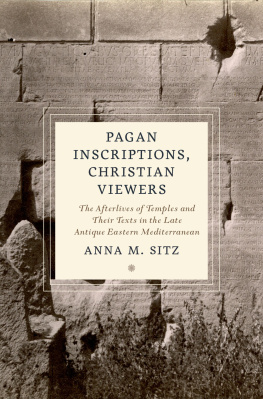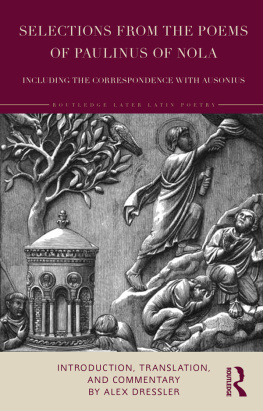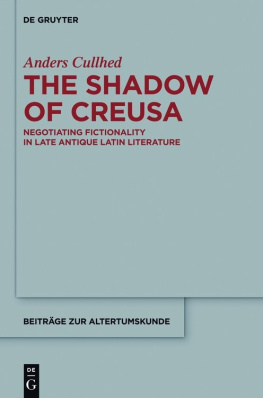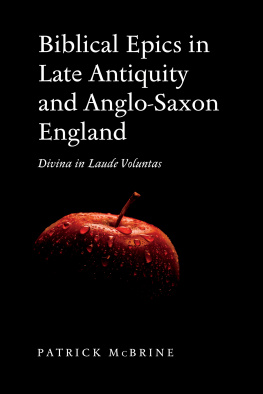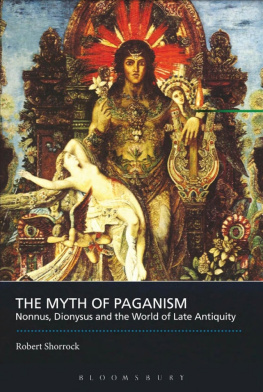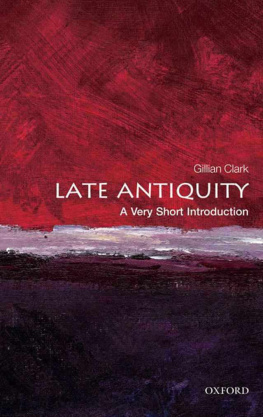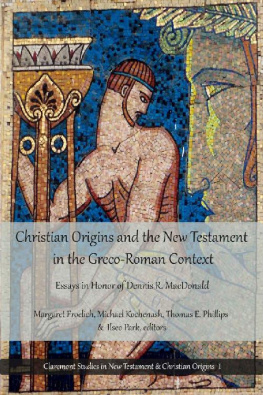
PRUDENTIUS PSYCHOMACHIA
This new translation brings to life Prudentius Psychomachia, one of the most widely read poems in western Europe from Late Antiquity through the Renaissance. With accompanying notes and introduction, this volume provides a fresh exploration of its themes and influence.
The Psychomachia of Prudentius (348c. 405), an allegorical epic poem of nearly 1,000 lines about the battle between the virtues and the vices for possession of the human soul, led early modern scholars to refer to the late antique poet as the Christian Vergil. Combining depictions of violent, single combats with allusions to pagan epic poetry, biblical scenes, and Christian doctrine, the poem captures the dynamism of the later Roman Empire in which the pagan world was giving way to a new, Christian Europe. In this volume, the introduction sets the historical and literary context and illuminates the Psychomachias prominent role in western literary history. Mastrangelos translation aims to capture the rhetorical power of the authors Roman Christian Latin for the 21st-century reader. The notes provide the reader with in-depth information on Prudentius Latinity, the Roman epic tradition, and Christian doctrine.
This volume is directed at students and scholars across the disciplines of comparative literature, classics, religion, and ancient and medieval studies, as well as any reader interested in the history and development of literature in the West.
Marc Mastrangelo is Professor of Classical Studies at Dickinson College, USA, and the author of The Roman Self in Late Antiquity (2008). He has written on Greco-Roman intellectual history and poetics, and translated Diogenes Laertius Life of Socrates for the volume The Unknown Socrates (2002).
ROUTLEDGE LATER LATIN POETRY
Edited by Joseph Pucci
Brown University, USA
The Routledge Later Latin Poetry series provides English translations of the works of those poets writing in Latin between the fourth and the eighth centuries inclusive. It responds to the increasing interest in later Latin authors and especially the growth in courses devoted to late antiquity. Books in the series are designed to provide comprehensive coverage to support students studying later Latin poetry and to introduce the material to those wishing to read these important and often under translated works in English.
The RLLP is devoted to publishing creative, accessible translations. Each volume is self-contained: introductory material contextualizes the life and output of the poet in question, and includes manuscript and editorial details; some discussion of metrics and Latinity; and a sense of how the work being translated might be interpreted (including where possible the scholarly history of the same). This section concludes, as need be, with maps and a list of any editorial changes made by the translator to the established Latin text. At the conclusion of each volume, in addition to endnotes and a works cited list, there is a general index that, beyond allowing readers to negotiate content, also serves as a glossary of names, dates, figures, places and events. Volumes hew, as much as possible, to line-for-line versions of the Latin original, so that those who come to the translations with a knowledge of Latin can orient their reading with the original.
By offering English translations of later Latin poetry with comprehensive supporting material the series enables a greater understanding of late antiquity through one of its most important literary outputs. The poems are significant sources for the culture, religion and daily life of the period and clear and imaginative translations also offer readers the chance to appreciate their quality.
PRUDENTIUS CROWN OF MARTYRS
Liber Peristephanon
Len Krisak
PRUDENTIUS PSYCHOMACHIA
Marc Mastrangelo
For more information about this series, please visit: www.routledge.com/Routledge-Later-Latin-Poetry/book-series/LLP
First published 2022
by Routledge
4 Park Square, Milton Park, Abingdon, Oxon OX14 4RN
and by Routledge
605 Third Avenue, New York, NY 10158
Routledge is an imprint of the Taylor & Francis Group, an informa business
2022 Marc Mastrangelo
The right of Marc Mastrangelo to be identified as author of this work has been asserted in accordance with sections 77 and 78 of the Copyright, Designs and Patents Act 1988.
All rights reserved. No part of this book may be reprinted or reproduced or utilised in any form or by any electronic, mechanical, or other means, now known or hereafter invented, including photocopying and recording, or in any information storage or retrieval system, without permission in writing from the publishers.
Trademark notice: Product or corporate names may be trademarks or registered trademarks, and are used only for identification and explanation without intent to infringe.
British Library Cataloguing-in-Publication Data
A catalogue record for this book is available from the British Library
Library of Congress Cataloging-in-Publication Data
Names: Prudentius, 348 author. | Mastrangelo, Marc, translator.
Title: Prudentius Psychomachia / Marc Mastrangelo.
Other titles: Psychomachia. English | Routledge later Latin poetry.
Description: New York : Routledge Taylor & Francis Ltd, 2022. | Series: Routledge
later Latin poetry | Includes bibliographical references and index.
Identifiers: LCCN 2021038817 (print) | LCCN 2021038818 (ebook) |
ISBN 9780367205232 (hardback) | ISBN 9781032189888 (paperback) |
ISBN 9780429261992 (ebook)
Subjects: LCGFT: Epic poetry.
Classification: LCC PA6648.P6 P7313 2022 (print) | LCC PA6648.P6 (ebook) |
DDC 808.81/32dc23
LC record available at https://lccn.loc.gov/2021038817
LC ebook record available at https://lccn.loc.gov/2021038818
ISBN: 978-0-367-20523-2 (hbk)
ISBN: 978-1-032-18988-8 (pbk)
ISBN: 978-0-429-26199-2 (ebk)
DOI: 10.4324/9780429261992
Typeset in Times New Roman
by Apex CoVantage, LLC
FOR MY SISTER, DENICE
SPECULUM NOSTRUM
CONTENTS
1 Prudentius, Psychomachia, translated by Marc Mastrangelo
2 Notes to Prudentius Psychomachia
- 1 Prudentius, Psychomachia
- 2 Notes to Prudentius Psychomachia
Guide
PREFACE
Prudentius is an author whose work reveals the continuities and discontinuities between the ancient, late antique, and early modern worlds of literature, thought, and language. This ambitious claim is worth stating, as it expresses Prudentius peculiar artistic position in his own time and his widespread but varied reception in western Europe. Consequently, understanding Prudentius contribution to western literature depends on our linguistic competence and interpretative and historical knowledge. Moreover, translating Prudentius Psychomachia for 21st-century readers is a small but, I believe, crucial part of a cultural and human imperative: to connect with each other across the frontiers of time, space, and language. To this end, I have endeavored to provide a readable and accessible English translation of Prudentius Psychomachia. Taken together, the translation, introduction, and notes attempt to give a sense of the excellence and importance of Prudentius poem on its own terms and in the history of western verse.


